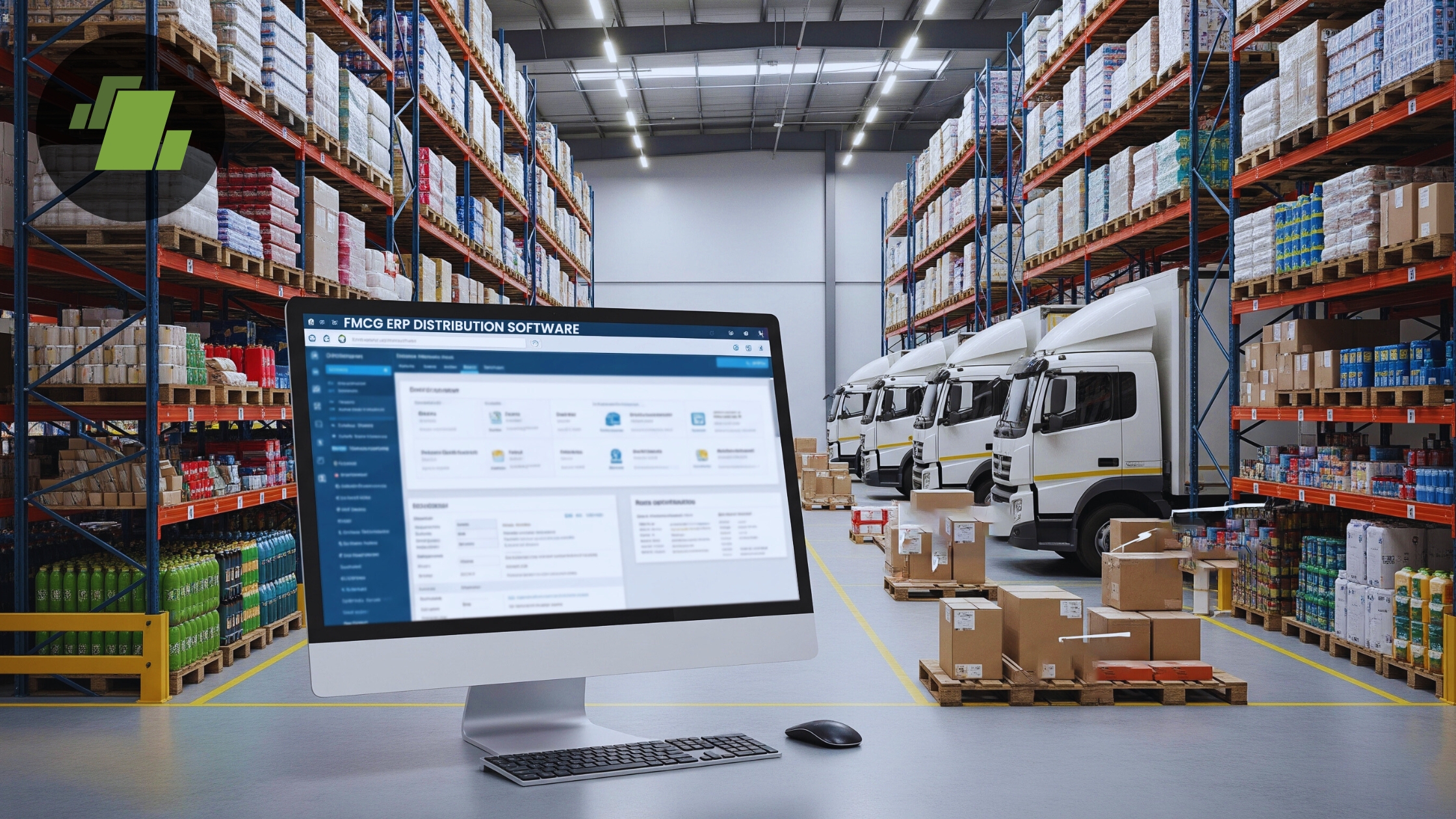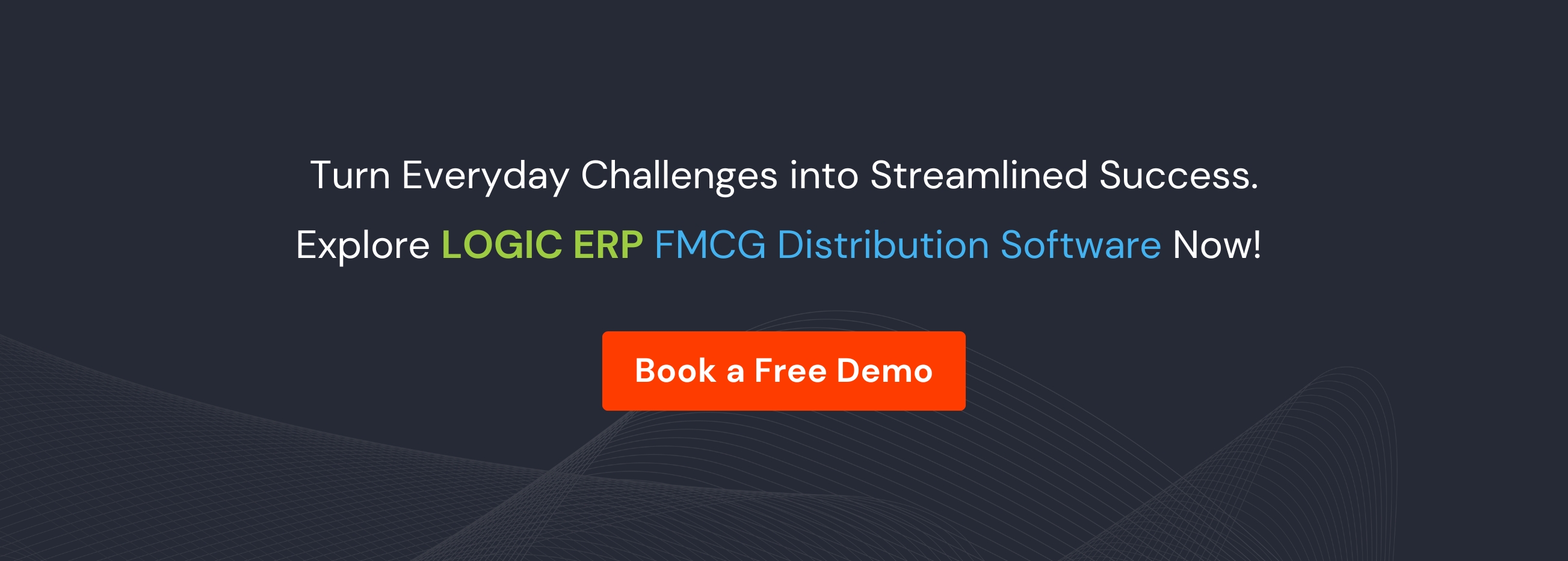Best Practices for Implementing FMCG Distribution ERP Software


Quick Summary
Looking to level up your FMCG business? Implementing LOGIC ERP FMCG distribution software helps you streamline billing, inventory, and supply chain operations while following best practices ensures smooth adoption and scalable growth for FMCG distribution companies.
Key Takeaways
-
Choosing a reliable ERP for FMCG distribution companies like LOGIC ERP ensures seamless inventory, billing, and order management.
-
Involving stakeholders early improves adoption of FMCG distributor software and aligns the system with business goals.
-
Customizing your FMCG distribution software enables better control over schemes, pricing, and batch-wise inventory tracking.
-
Proper training helps your team utilize FMCG software effectively, reducing errors in wholesale billing and distribution.
-
Integrating FMCG distribution and wholesale billing software with accounting tools, barcode systems, and mobile apps boosts operational efficiency.
-
Tracking performance using real-time dashboards in LOGIC ERP helps FMCG distributors make informed decisions faster.
Introduction
If you’re in the FMCG distribution business, you already know the pressure: fast deliveries, accurate billing, real-time stock tracking, and customer satisfaction, all at once. As operations scale, outdated processes just can’t keep up. That’s when businesses need to adapt advanced FMCG distribution ERP software that can align all operations at one place, making your business scale faster and streamline billing, inventory, and supply chain seamlessly.
But buying software isn’t the solution in itself, implementing it the right way is what truly drives results. In this guide, we’ll cover key best practices that help FMCG distribution companies implement ERP software smoothly, avoid common pitfalls, and get the most value out of their investment.
Why Implementation Matters in FMCG Distribution
Implementing ERP for FMCG distribution companies is a strategic move to centralize inventory, billing, and sales tracking under one powerful platform. With increasing complexity in distribution channels, evolving customer expectations, and pressure to deliver faster, seamless implementation of FMCG distributor software is important.
Best Practices for Successful Implementation
1. Choose the Right Software Partner
Choosing the right FMCG distribution and wholesale billing software is the first step toward a smooth and successful ERP implementation. LOGIC ERP offers industry-specific modules for the FMCG sector, including:
- Real-time inventory tracking
- Multi-location warehouse management
- Route-wise and van sales tracking
- Automated billing and GST compliance
Pro Tip: Look for software that is scalable, and offers both cloud and on-premise deployment options.
2. Involve Key Stakeholders Early
Implementation should be a team effort. Engage sales managers, warehouse staff, finance, and IT teams in the decision-making and rollout process.
Benefits:
- Improved software adoption
- Better requirement gathering
- Reduced resistance to change
3. Map Out Existing Distribution Processes
Before jumping into deployment, analyze and document your current workflows. This helps LOGIC ERP implementation experts align the software features with your business logic.
Example:
- Map out product movement from supplier to warehouse to retailer
- Identify gaps in manual billing or slow inventory updates
4. Scalable to Fit FMCG Business Needs
Every distributor operates differently. With LOGIC ERP, you can tailor modules like:
- Primary and secondary sales management
- Batch-wise and expiry-based inventory
- Schemes, promotions, and discount handling
Customization ensures that your FMCG software aligns with your unique business model.
5. Train Your Team Thoroughly
Even the best software fails without proper user training. LOGIC ERP provides in-depth user training sessions that include:
- Navigation and dashboard use
- Real-time billing and stock entry
- Reporting and analytics training
Tip: Record training sessions for future hires or refresher use.
6. Integrate with Third-Party Tools
To maximize efficiency, your FMCG distribution software should integrate with:
- Barcode scanners
- Mobile sales apps
- Accounting systems
- E-way billing and GST portals
LOGIC ERP offers seamless integration, making your workflow smoother and faster.
7. Monitor Performance and Collect Feedback
Once the system is live, continuously monitor:
- Sales order cycle time
- Inventory turnover
- Billing errors or delays
Encourage team feedback to make quick adjustments and improve performance.
With LOGIC ERP’s dashboard and reporting tools, you gain real-time insights into all key metrics.
Why Choose LOGIC ERP for FMCG Distribution?
LOGIC ERP stands out as a trusted provider of FMCG distributor software with:
- 30+ years of domain expertise
- Specialized modules for FMCG distribution, retail, and wholesale
- Pan-India client base including top distributors and manufacturers
- Scalable, secure, and mobile-friendly platform
Conclusion
Implementing an FMCG distribution software like LOGIC ERP isn’t just a tech upgrade, it’s a strategic decision that boosts business efficiency and growth. By following these best practices, your distribution business can transition smoothly and start realizing benefits from day one.
Ready to streamline your FMCG distribution operations? Contact the experts at LOGIC ERP today and book your free demo by calling us at +91-73411-41176 or send us an email at sales@logicerp.com today!
Frequently Asked Questions (FAQ)
1. What is FMCG distribution software?
FMCG distribution software is an ERP solution that helps manage inventory, billing, warehousing, and distribution processes for fast-moving consumer goods. It streamlines operations and improves efficiency across the supply chain.
2. Why do FMCG companies need specialized ERP software?
ERP for FMCG distribution companies offers industry-specific tools like expiry tracking, van sales, multiple pricing structures, and GST billing. This helps in handling complex distribution needs that generic ERPs can’t manage effectively.
3. What are the key features of LOGIC ERP’s FMCG software?
- Real-time stock visibility
- Multi-location warehouse management
- Route and beat planning
- Scheme and discount handling
- Automated wholesale billing
- GST and E-way bill integration
4. How long does it take to implement FMCG distributor software?
Implementation timelines vary depending on business size and complexity but can typically range from a few weeks to a few months. With LOGIC ERP’s dedicated support, the process is faster and smoother.
5. Can FMCG distribution and wholesale billing software integrate with existing systems?
Yes, LOGIC ERP FMCG distribution and wholesale billing software offers seamless integration with accounting tools, mobile sales apps, barcode systems, and more to provide a unified digital ecosystem.
6. Is cloud-based FMCG software better than on-premise?
Cloud-based FMCG software offers advantages like remote access, scalability, and lower upfront costs. LOGIC ERP supports both deployment options, giving businesses flexibility.


